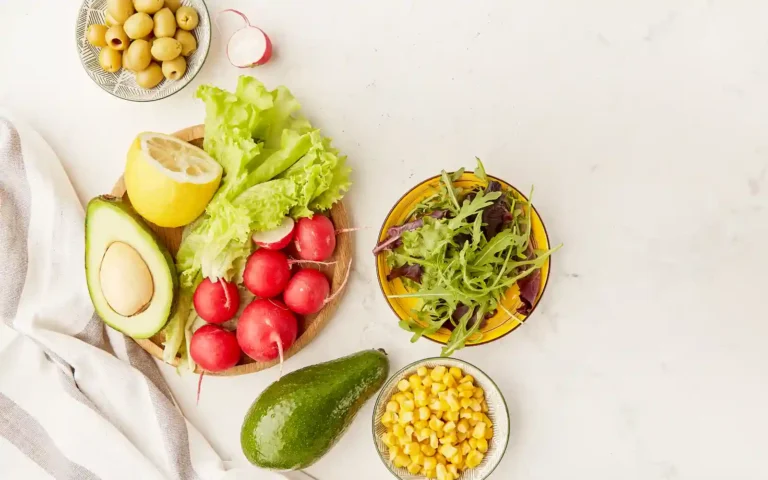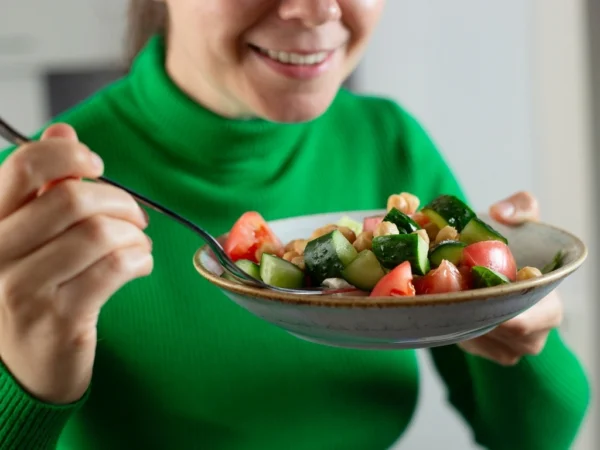What Exactly Is a Plant-Based Diet?
Plant-based or plant-centric eating has made its way to the dinner table, and we are here for it! With so many variations of eating patterns like vegetarian, flexitarian, pescatarian, etc., it can be confusing to keep track of what they mean. Eating plant-based or plant-centric is a way of putting your focus on fruits, vegetables, whole grains, beans, and legumes, rather than on animal products.
A person’s reasoning to ditch dairy or minimize meat can range from religious or cultural traditions to individual health or the environmental impact. Does being plant-based mean you only eat healthy foods? Not necessarily. Even some snack foods like Oreos, potato chips, and French fries are surprisingly vegan. Also, many processed meat substitutes can be high in calories and sodium, so be sure to read the nutrition facts labels.
Not only have restaurants and markets picked up on this plant-based trend, but researchers are looking into its overall health effects as well. The Nutritional Update for Physicians: Plant-Based Diets found that a vegan diet is beneficial for weight loss and is effective for decreasing the risk of cardiovascular disease, Type II diabetes, and lowering blood pressure.¹ Given that meat is a popular source of protein, a vegan diet may seem to be lacking in this important nutrient. However, an individual who maintains a well-balanced and varied plant-based diet is likely not at risk for a deficiency in protein.
On the other hand, if not done correctly, a plant-based diet can cause some micronutrient deficiencies. Micronutrients include both vitamins and minerals and are referred to as such because they are only needed in small amounts. Even though they are needed in lesser quantities, micronutrients are essential for making many of the processes that happen inside our bodies possible.² For example, iron and vitamin B12 are important for overall blood health, and a deficiency can lead to anemia. Iron that comes from plant sources cannot be used as efficiently in the body as iron from meat sources, so incorporating iron-rich, plant-based foods, such as kidney and black beans, cabbage, tomato juice, soybeans, and cashews, is important. Calcium and vitamin D are also micronutrients that could be lacking in a vegan diet, both being important for bone health. While vitamin D deficiency can be found in meat eaters and vegans alike, fortified cereals and supplements can be consumed to prevent it. Omega-3, an essential fatty acid found abundantly in various fish, has been found to be low in individuals following a vegan diet.²

If you are curious about trying a plant-based diet or just want to consume less meat, careful planning can help you avoid losing out on these important vitamins and minerals. If you are thinking of giving it a try and are concerned about getting all of the nutrients you need, you can call (312) 374-5399 or schedule an appointment online with one of our Registered Dietitians today.
Submitted by Lauren Ranley
Edited by Alex Franz
Reviewed by Morgan Murdock, RD
References
- Duyff, R. L. (2017). Academy of Nutrition and Dietetics complete food and nutrition guide. Boston: Houghton Mifflin Harcourt.
- Tuso, P., Ismail, M., Ha, B., & Bartolotto, C. (2013). Nutritional Update for Physicians: Plant-Based Diets. The Permanente Journal, 17(2), 61–66. doi: 10.7812/tpp/12-085













